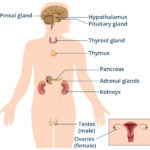The question, “Where Were you on 9/11?” resonates deeply across America and beyond. It’s more than just a conversation starter; it’s a shared moment of reflection, a way to connect with others through a collective memory of one of the most devastating attacks in U.S. history – September 11, 2001. As we approach another anniversary, organizations like the Veterans of Foreign Wars (VFW) join the nation in solemn remembrance, honoring the countless lives tragically lost in New York City, Washington D.C., and Shanksville, Pennsylvania, twenty-one years ago.
History marks generations with defining moments. For many, it’s Pearl Harbor, or the assassinations of President Kennedy and Martin Luther King Jr. These events are etched in memory, recalled with vivid detail: where we were, what we were doing, how we received the news. However, the attacks of September 11, 2001, were unprecedented. For the first time, mass tragedy unfolded live on television, a real-time horror witnessed globally. The question “where were you” takes on an even greater significance when considering the shared, visual nature of this event.
Tuesday, September 11, 2001, began as an ordinary morning. At 8:46 a.m. Eastern Standard Time, American Airlines Flight 11 struck the North Tower of the World Trade Center in New York City. Minutes later, at 9:03 a.m., United Airlines Flight 175 hit the South Tower. News reports quickly confirmed the unthinkable: hijacked planes, acts of terrorism, America under attack. The unfolding events were rapid and devastating. At 9:37 a.m., American Airlines Flight 77 crashed into the Pentagon, causing a partial collapse. The South Tower of the WTC fell at 9:59 a.m., followed by the crash of United Airlines Flight 93 in Shanksville, Pennsylvania at 10:03 a.m. Finally, at 10:28 a.m., the North Tower of the World Trade Center collapsed. In a mere 102 minutes, nineteen hijackers inflicted unimaginable loss, claiming the lives of 2,977 people and plunging the nation into profound shock and grief. The question “where were you” is often followed by a recounting of these precise moments, a timeline seared into the collective consciousness.
Amidst the overwhelming tragedy, stories of extraordinary bravery emerged from the rubble. Firefighters and law enforcement officers rushed into the burning World Trade Center towers, selflessly rescuing countless individuals. Service members at the Pentagon guided people through smoke and debris to safety. Passengers aboard Flight 93 demonstrated incredible courage, fighting back against hijackers to prevent further devastation. This selfless sacrifice became as defining of that day as the attacks themselves, a beacon of hope and resilience amidst despair. When we ask “where were you,” we also remember the heroes of that day, their actions a testament to the human spirit.
The world post-9/11 is markedly different. The wars initiated in the aftermath are concluding. While the global fight against terrorism persists, the landscape of conflict has shifted. A new generation enters military service, one that did not experience the immediate shock of 9/11. However, for those who were serving or considering military service in 2001, the attacks solidified a commitment to “support and defend” the Constitution and the American way of life. For those who remember where they were on 9/11, the day remains a pivotal moment, a turning point that irrevocably altered personal and national trajectories.
On this Patriot Day and National Day of Service and Remembrance, the VFW calls upon all Americans to pause and remember. Honor the victims, reflect on the unparalleled courage of first responders and ordinary citizens, pay tribute to those who bravely defended freedom, and ensure that September 11, 2001, never fades from our collective memory. Let us always remember not just the tragedy, but also the unity and resilience that emerged from the question, “where were you?” and the events of that fateful day.

